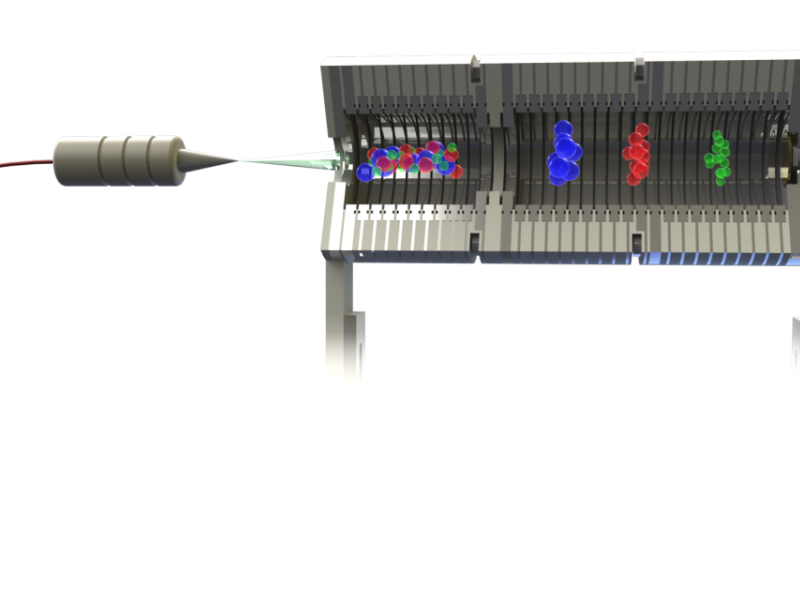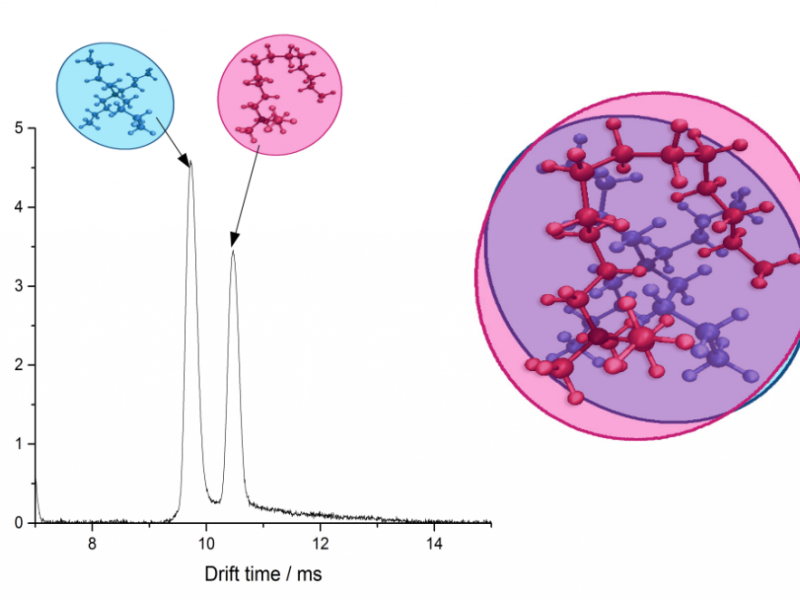The experimental part of this project is carried out at the University of Potsdam and focuses on the coupling of an infrared free liquid matrix-assisted laser dispersion ionization (IR-FL-MALDI) source to an IM spectrometer. The characterization of the IR-MALDI phenomenon, as well as the optimization of the spectrometer for analytical purposes are the central point of this work. Emphasis is given to the conception, design and implementation of novel IR-MALDI source designs for IMS.
The characterization of different non-native structures of peptide ions in the gas phase, as well as various biologically relevant substance classes (pesticides, neuroleptics, amino acids…), is the other main experimental challenge. Cross-section and mobility values are determined through atmospheric as well as reduced pressure experiments.
These experiments are complemented by the computational work carried out at the Zuse Institute Berlin. Molecular dynamics (MD) calculations are carried out with the aim to determine the stable conformations of a given molecule along with their statistical weights using multiple overlapping basis functions. Different molecular conformations are determined and used for the calculation of collision cross sections. The comparison between MD calculations and experimental results enables molecular structure assignment and a better understanding of the folding and oligomerization pathways of molecules.

